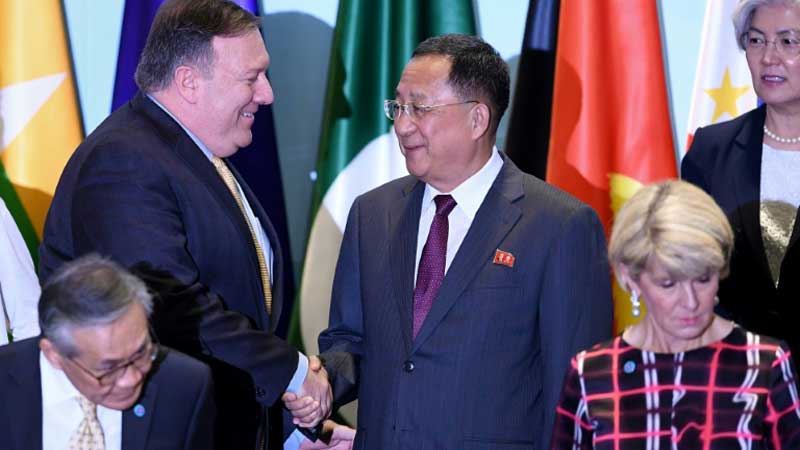×
The Standard e-Paper
Fearless, Trusted News

North Korea on Saturday said the US was acting with "alarming" impatience on the issue of denuclearisation, after Secretary of State Mike Pompeo stressed the need to maintain full sanctions pressure on Pyongyang.
The contrasting comments at a security forum in Singapore came after a new UN report showed Pyongyang was continuing with its nuclear and missile programmes and evading sanctions through ship-to-ship oil transfers.